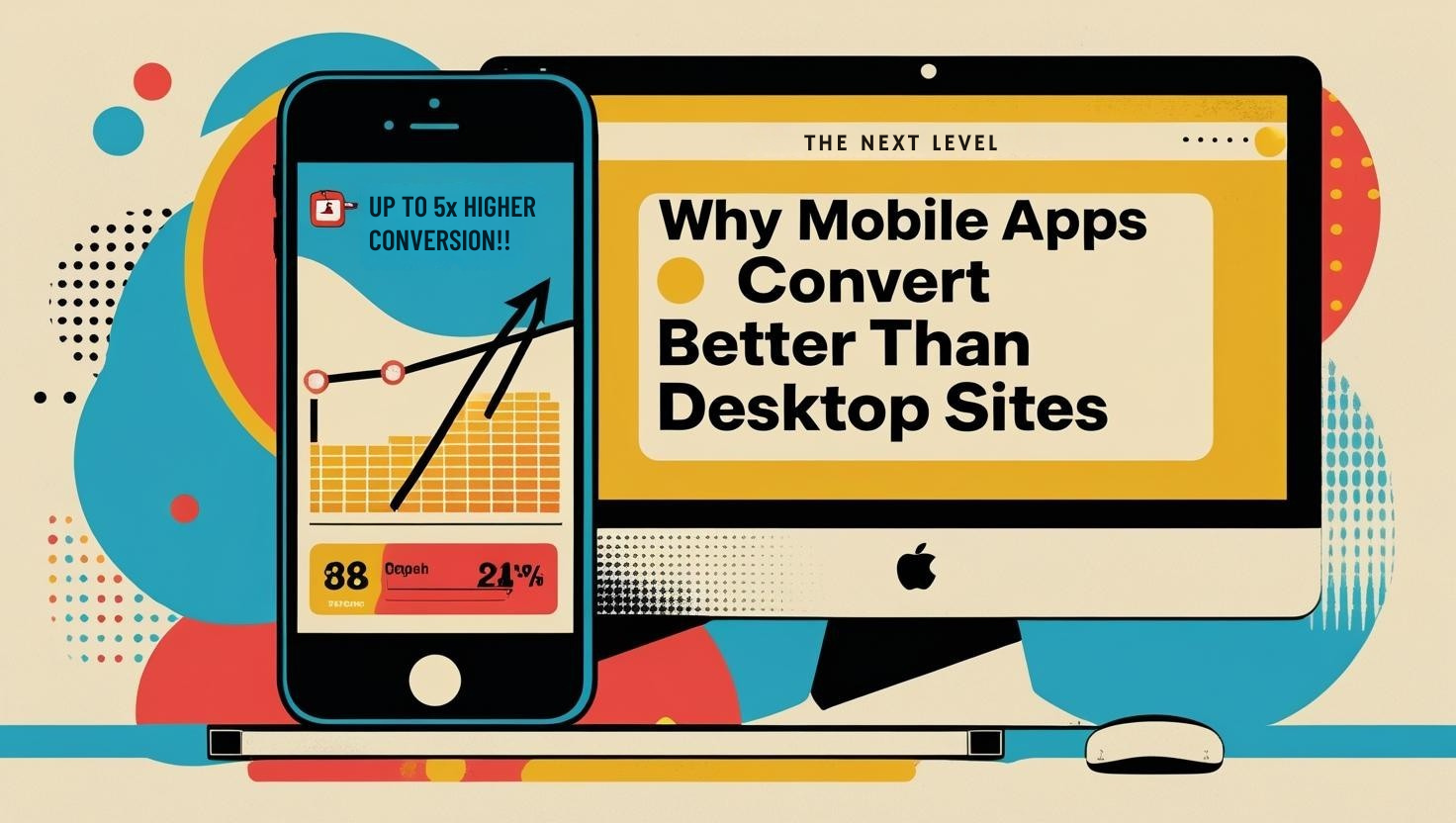
Mobile App Optimization

Why Mobile Apps Convert Better Than Desktop Sites
In the digital age, user experience is everything. Whether you're running an e-commerce store, a subscription service, or a digital content platform, the goal is the same: convert visitors into users, and users into loyal customers. While desktop websites have long been the traditional medium for online engagement, mobile apps are increasingly dominating the conversion game—and for good reason.
Let’s break down the top reasons why mobile apps convert better than desktop websites, and why brands should take notice.
1. Superior User Experience (UX)
Mobile apps are specifically designed for smaller screens and touch navigation, which means every element—from buttons to menus to checkout flows—is optimized for ease of use. Apps offer:
- Smoother navigation: No clutter, no lag—just intuitive interfaces.
- Personalized content: Apps can leverage user data and behavior to tailor experiences.
- Faster load times: Apps store assets locally, drastically reducing load time compared to websites.
A seamless user experience reduces friction—one of the top barriers to conversion.
2. Push Notifications Drive Engagement
Unlike desktop sites that rely on email or passive marketing, mobile apps have direct access to users via push notifications. These real-time, on-screen messages are hard to ignore and incredibly effective at:
- Nudging users back to abandoned carts
- Promoting flash sales or time-sensitive deals
- Delivering personalized messages based on user activity
Push notifications boast open rates as high as 90%, compared to email’s 20%—a massive driver of re-engagement and conversions.
3. Convenience & Accessibility
Mobile apps are just a tap away—literally. Unlike desktop experiences that require booting up a device, navigating to a URL, and logging in, mobile apps offer:
- Persistent login sessions
- Instant access via home screen icons
- Offline functionality for content or features that don’t require an internet connection
This always-available nature encourages spontaneous browsing and impulse purchases.
4. Integrated Payment Systems
Apps can leverage native payment solutions like Apple Pay, Google Pay, or stored credit cards, significantly reducing checkout friction. Fewer clicks mean fewer drop-offs, which directly impacts conversion rates.
Compare that with the multi-step checkout process on many desktop sites, and the advantage becomes clear.
5. Personalization & Data Insights
Mobile apps are more tightly integrated with device hardware and software, allowing for advanced data collection and hyper-personalized experiences:
- Geolocation for local offers
- Usage patterns for tailored recommendations
- Behavioral analytics for real-time optimization
This level of insight and adaptability makes it easier to guide users through a customized funnel that ends in conversion.
6. Trust and Brand Presence
There’s a certain level of credibility that comes with having an app in the App Store or Google Play. Users often trust apps more than mobile or desktop sites, especially if:
- They’ve gone through the process of downloading it
- The app has good ratings and reviews
- The UI feels native and polished
Plus, once installed, your brand’s icon is literally on the user’s device—a constant visual reminder.
7. Gamification and Loyalty Programs
Mobile apps are ideal platforms for gamified features and loyalty programs. Points systems, badges, rewards, and tiered memberships are all more immersive and engaging in an app setting than on a traditional desktop website. These elements encourage repeat engagement and ultimately, more conversions.
Final Thoughts
Mobile apps aren’t just a trend—they’re the next evolution in customer engagement and conversion. With their ability to deliver personalized, frictionless, and high-speed experiences, apps turn casual browsers into loyal customers more effectively than desktop websites ever could.
If your brand is serious about optimizing conversion rates, a well-designed mobile app isn’t just a nice-to-have—it’s a necessity.








